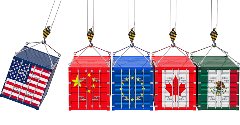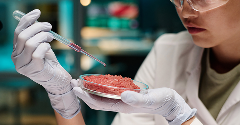News
South-East Asia: Renewed interest in sports nutrition products
19 Dec 2023South-East Asia’s renewed focus on the elderly has also given rise to an emerging sports nutrition sector that serves to address similar health issues such as immune support and bone and joint health.
Whilst an increasingly ageing population could partially explain this interest, wider global trends such a shift to healthier diets, sustainability concerns and the fallout from Covid-19 cannot be discounted.
Sports nutrition ticks all these boxes, blending the influence of holistic remedies with scientific scrutiny that validates the ingredients and extracts purported to promote health benefits.

These include herbal extracts such as ginseng and ashwagandha, which have been used to boost health in Asia for thousands of years, having been adopted by new audiences relatively recently.
Global market analysts at Mintel have highlighted Australia, China, and India’s product launches as key to the market’s expected 9.5% growth, tipped to reach 15bn by 2026.
The rise of South Korea’s sports nutrition industry
South Korea is one country in the region that has taken the concept of foods to reduce frailty, nutrition, and malnutrition rates and turned them into innovations that aid in sporting performance and post-exercise recovery.
Amway Korea is capitalising consumer interest in the gut microbiome, driven by both immune and gut health concerns, by launching Glyco Down, a supplement designed to assist in blood sugar management.
The Seoul-based firm already has a range of protein-based food products in a number of formats that include snacks, bars, and liquids.
Analysis of products for health and fitness
Latest figures from the country’s Ministry of Food and Drug Safety (MFDS) noted that the volume of health supplements and ingredients imported was up from 22,536 tons in 2021 to 27,045 tons last year.
Crucially, consumer preferences have also shifted within the country, with a greater interest shown in healthy eating, with McKinsey highlighting that shoppers are willing to pay higher prices to get healthier products.
“Grocery retailers have responded by launching new products with less sugar, fewer artificial ingredients, and additional nutrients, a move that has boosted revenues,” said the management consultant partners’, Younghoon Kang and Jeongkeun Kim.
Related news

Future F&B flavours favour exploration and explosive taste profiles
25 Mar 2025
Exploration and experimentation will define the future of flavour, according to Mintel, as consumers seek out taste profiles and textures that offer an adventurous eating experience.
Read more
Partnership plans to scale cultivated meat production
21 Mar 2025
Food technology innovator Ever After Foods (EAF) and multinational food leader Bühler are striving to overcome hurdles to access and accelerate the development of cultivated meat.
Read more
Global consumers enjoy food less and perceive it as less healthy
20 Mar 2025
Enjoyment of food and its perceived healthiness is dwindling among most global populations, according to findings from Gallup and Ando Foundation/Nissin Food Products.
Read more
Seafood set to ‘dethrone’ poultry as protein growth king
19 Mar 2025
Seafood is poised to surpass poultry as the leading contributor to global protein supply growth this year, according to Rabobank’s latest protein outlook.
Read more
Tariff volatility leaves food manufacturers in limbo
11 Mar 2025
Rapid US trade policy shifts and tariff escalations are creating uncertainty for food manufacturers and ingredient suppliers.
Read more
F&B industry hit with fresh greenwashing claims
26 Feb 2025
The food and beverage (F&B) industry is under fresh scrutiny amid claims of greenwashing, with Arla the latest company in the firing line.
Read more
Protein diversification: A massive missed market?
20 Feb 2025
Germany and the UK could be missing out on the massive market for alternative meats and proteins, with one new coalition calling for an end to the “steak-tofu struggle”.
Read more
Have scientists discovered a new tool to measure UPFs?
19 Feb 2025
Researchers have developed a new scoring system and database, compiling over 50,000 food items, of which over 1,000 are classified as ultra-processed.
Read more
China ramps up cultivated meat research with new innovation base
18 Feb 2025
China has opened its first fermentation and cultivated meat research centre in Beijing.
Read more
Most consumers lack trust in AI, but supplement users are ready to embrace the technology
14 Feb 2025
A survey of UK and US consumers found that most supplement users are willing to let AI make decisions on their behalf, but they also demand greater transparency.
Read more